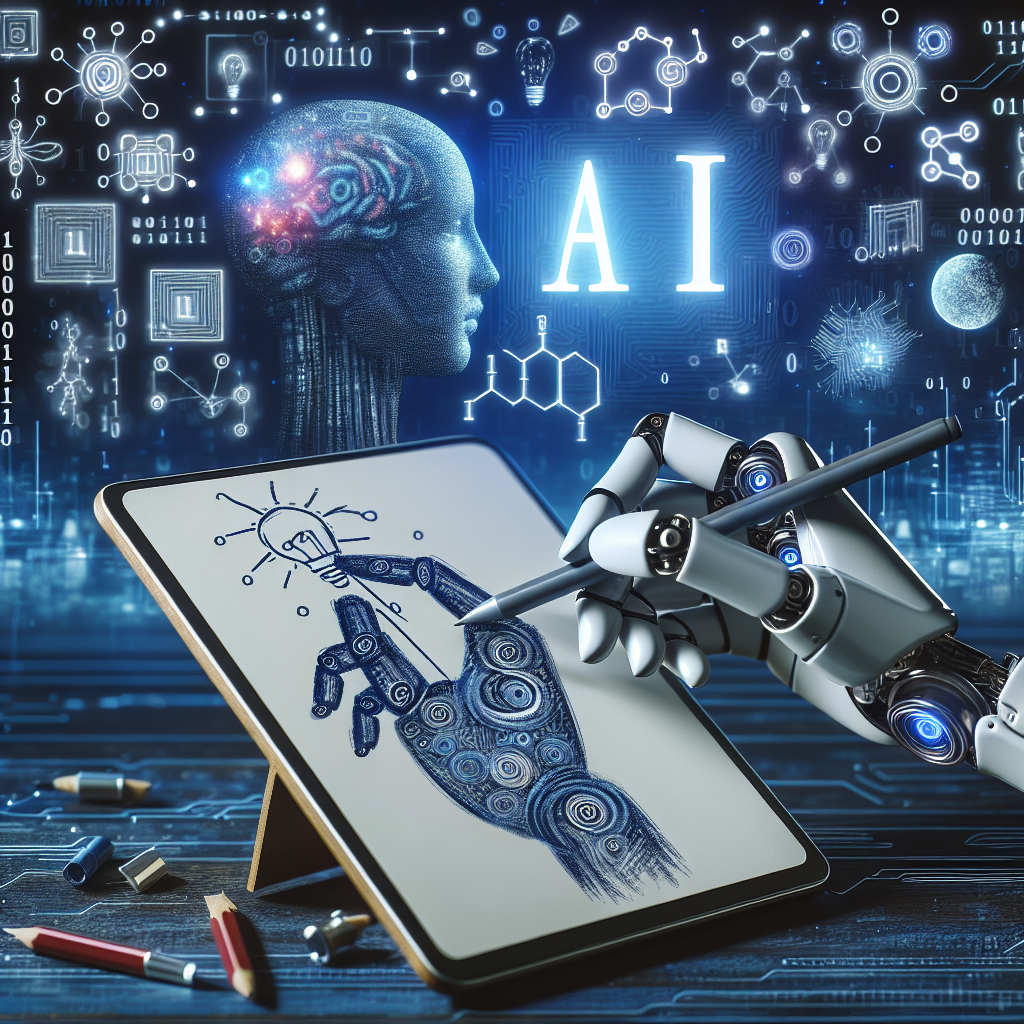Artificial Intelligence (AI) is revolutionizing the way creative development is approached in various industries. From marketing to entertainment, AI is being used to automate processes, analyze data, and generate new ideas. This technology has the potential to greatly impact the creative process, making it more efficient, innovative, and targeted. In this article, we will explore the role of AI in redefining creative development and its implications for the future.
AI in Creative Development
AI is being used in creative development in a variety of ways. One of the most common applications is in content creation. AI algorithms can analyze data and generate content, such as articles, videos, and images, based on specific parameters. This is particularly useful for businesses that need to produce a large volume of content quickly and efficiently.
AI is also being used in the design process. Designers can use AI tools to automate repetitive tasks, such as layout design and color selection, allowing them to focus on more creative aspects of their work. AI can also generate design ideas based on user input, helping designers explore new possibilities and push the boundaries of their creativity.
In marketing, AI is being used to personalize content and target specific audiences. Marketers can use AI algorithms to analyze customer data and create personalized marketing campaigns that are more likely to resonate with their target audience. This can lead to higher engagement and conversion rates, as well as a better overall customer experience.
AI is also being used in the entertainment industry to create new forms of content. For example, AI algorithms can analyze existing movies, TV shows, and music to identify patterns and trends that can be used to create new content. This can help filmmakers and musicians create content that is more likely to be successful with audiences.
Implications for the Future
The role of AI in creative development is likely to continue to grow in the future. As AI algorithms become more advanced and capable, they will be able to handle more complex tasks and generate more innovative ideas. This has the potential to revolutionize the creative process, making it faster, more efficient, and more targeted.
However, the increasing role of AI in creative development also raises some concerns. For example, there is the risk that AI algorithms could replace human creativity altogether, leading to a homogenization of content and a loss of diversity in the creative industries. There are also ethical concerns surrounding the use of AI in creative development, such as issues of copyright infringement and data privacy.
Despite these concerns, the benefits of AI in creative development are clear. AI has the potential to streamline the creative process, making it more efficient and productive. It can also help creatives explore new ideas and push the boundaries of their creativity. As AI technology continues to evolve, its role in creative development is likely to become even more significant.
FAQs
Q: How is AI used in content creation?
A: AI algorithms can analyze data and generate content, such as articles, videos, and images, based on specific parameters. This is particularly useful for businesses that need to produce a large volume of content quickly and efficiently.
Q: How is AI used in design?
A: Designers can use AI tools to automate repetitive tasks, such as layout design and color selection, allowing them to focus on more creative aspects of their work. AI can also generate design ideas based on user input, helping designers explore new possibilities and push the boundaries of their creativity.
Q: How is AI used in marketing?
A: Marketers can use AI algorithms to analyze customer data and create personalized marketing campaigns that are more likely to resonate with their target audience. This can lead to higher engagement and conversion rates, as well as a better overall customer experience.
Q: What are the implications of AI in creative development?
A: The increasing role of AI in creative development has the potential to revolutionize the creative process, making it faster, more efficient, and more targeted. However, there are concerns about the potential homogenization of content and ethical issues surrounding the use of AI in creative development.

